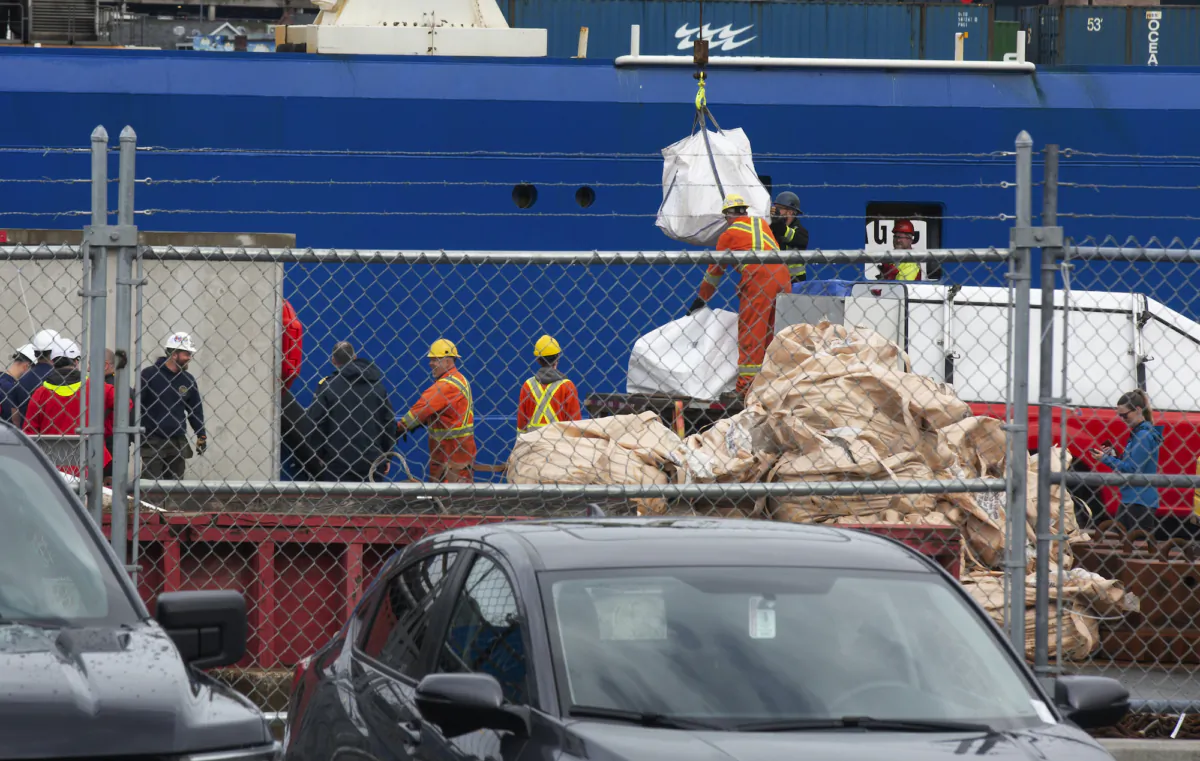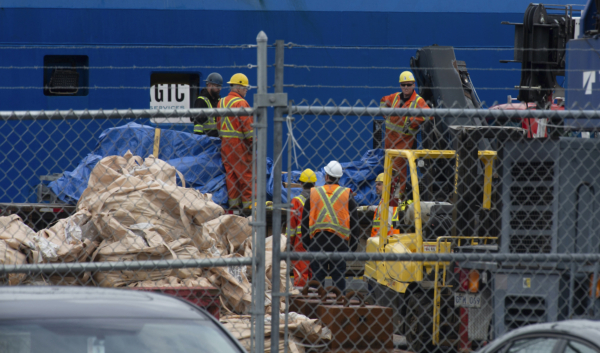
The company that operated a failed Titanic exploration trip that killed all five people on board confirmed it is suspending “all exploration and commercial operations” after the deadly incident last month.
OceanGate’s website announced the decision just weeks after its Titan submersible vehicle imploded during a trip to visit the Titanic shipwreck in the northern Atlantic Ocean. A previous version of the website shows the company had listed two trips to the Titanic scheduled for June 2024.
Approximately a week ago, presumed human remains and debris from the disaster were brought ashore to Canada, the U.S. Coast Guard said. The possible remains and shattered bits of the submersible Titan were carried to St. John’s, Newfoundland, about 400 miles north of the accident site, by the Canadian-flagged vessel Horizon Arctic, according to the Coast Guard.
The evidence will be transported by a Coast Guard cutter to a U.S. port for analysis and testing by a marine board of investigation, convened by the Guard this week to conduct a formal inquiry into the loss of the Titan, the agency said.
U.S. medical professionals also “will conduct a formal analysis of presumed human remains that have been carefully recovered within the wreckage at the site of the incident,” the Coast Guard statement added. The nature and extent of the possible remains recovered from the site were not specified.
Among the dead was Stockton Rush, the submersible pilot and CEO of U.S.-based OceanGate Expeditions, which owned and operated the Titan. Also killed were the British billionaire Hamish Harding, 58; Pakistani-born businessman Shahzada Dawood, 48, and his 19-year-old son, Suleman; and 77-year-old French oceanographer Paul-Henri Nargeolet.
The accident has raised questions about the unregulated nature of such expeditions and the decision by OceanGate to forego third-party industry review and certification of Titan’s novel design.
“Our team has successfully completed off-shore operations but is still on mission and will be in the process of demobilization from the Horizon Arctic this morning,” Pelagic Research, which operates a robotic vehicle used in recovering the debris, said in a statement.
OceanGate’s Titan imploded about two hours after it set out on its trip on June 18, losing all communications with its mother ship. Canadian and American officials are now investigating the cause.
This week, media outlets re-surfaced video footage of Mr. Rush, the CEO, comparing the glue holding the Titan together to “peanut butter” and said the carbon fiber design is “pretty simple.” The glue, he added, was “very thick, so it’s not like Elmer’s Glue,” adding that “it’s like peanut butter.”
Also in the video, Mr. Rush conceded that “if we mess it up, there’s not a lot of room for recovery.”
The submersible company was criticized by “Titanic” and “Avatar” director James Cameron, who himself conducted deep-sea trips, and said the material likely caused the vessel’s “critical failure.”
“You don’t use composites for vessels that are seeing external pressure,” he told ABC News last month. “They’re great for internal pressure vessels like scuba tanks, for example, but they’re terrible for external pressure.”

The famed director said that the material is more likely used for aviation design, not deep-sea technology.
“We all said that it was, you know, a flawed idea, and they didn’t go through certification,” Mr. Cameron said. “I think that was a critical failure.”
Documentary camera operator Brian Weed, meanwhile, told Business Insider that he took a test dive on Rush’s doomed sub in 2021, recalling unusual statements that the CEO made to him.
“That whole dive made me very uncomfortable with the idea of going down to Titanic depths in that submersible,” Mr. Weed said, adding that the submersible’s thruster system failed, the computers had problems, and that he was deadbolted into the sub with Rush.
When he asked the CEO if the vehicle had to suddenly make an ascent in an emergency situation and it wasn’t near the mother ship, Mr. Rush demurred.
The CEO told him that “‘Well, there’s four or five days of oxygen on board, and I said, ‘What if they don’t find you?’ And he said, ‘Well, you’re dead anyway,'” Mr. Weed recalled. “It seemed to almost be a nihilistic attitude toward life or death out in the middle of the ocean,” Mr. Weed said.
The Titan spent more than two hours in the ocean before Mr. Rush said that they “had to abort the dive because there was no way for the vessel to get down to the target,” Mr. Weed claimed.
“The whole time I’m in the water locked in this [submersible] and thinking this is supposed to go to the Titanic in two months,” Mr. Weed stated. “We can’t get below 100 feet, and this is supposed to go 12,000 feet under the ocean.”
https://www.theepochtimes.com/oceangate-suspending-all-exploration-and-commercial-operations-after-catastrophic-sub-disaster_5378383.html

No comments:
Post a Comment